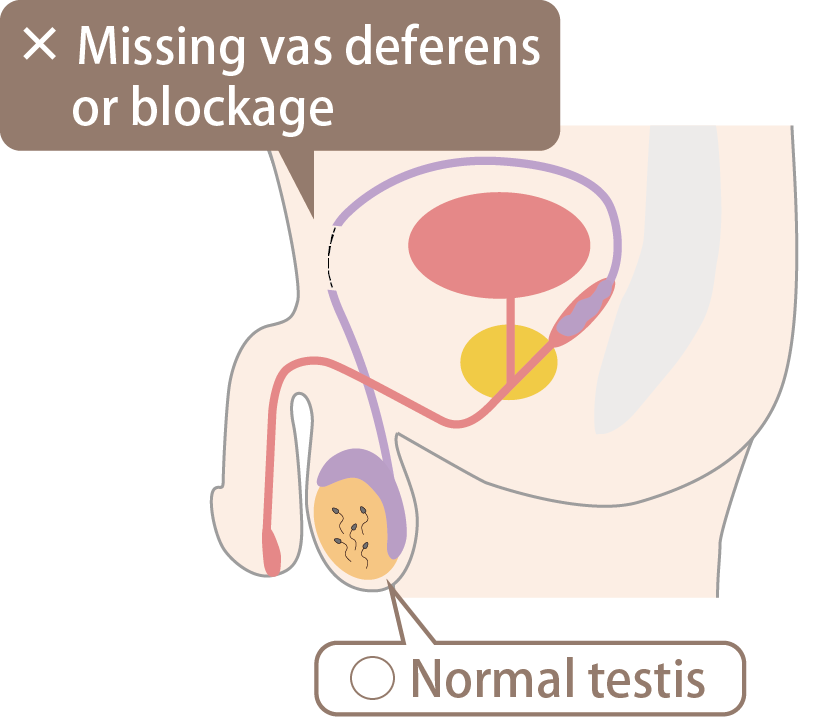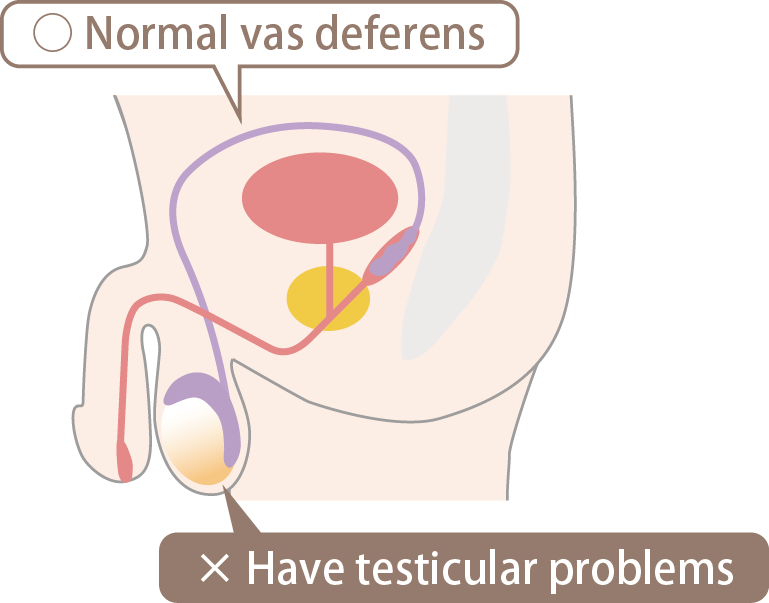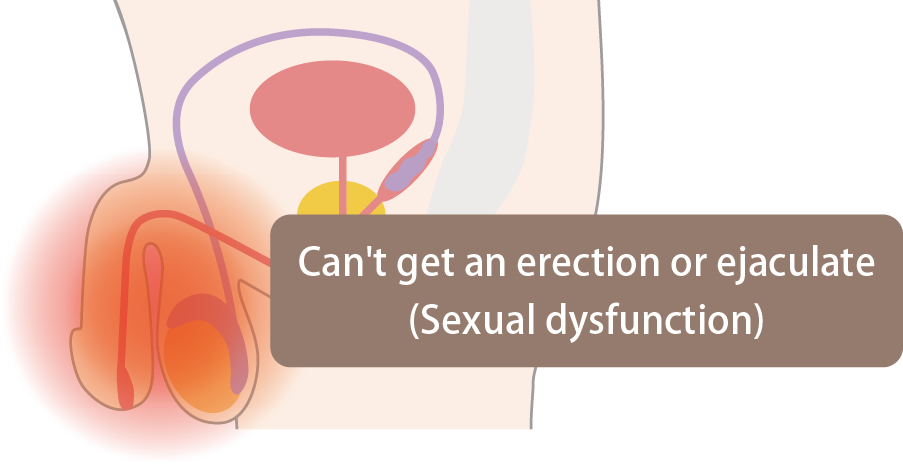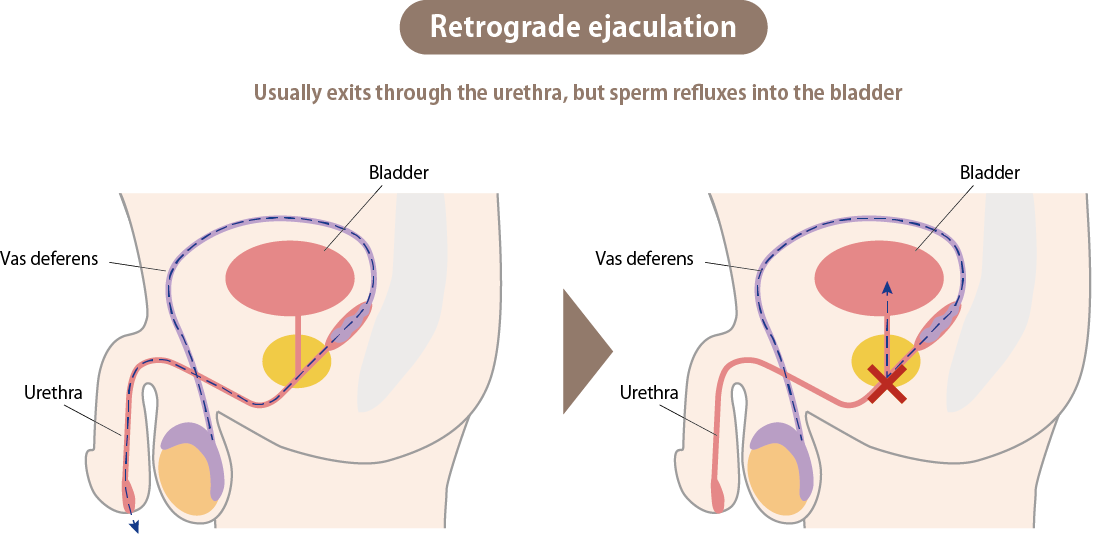Azoospermia is a condition in which sperm are not found in semen.
If no sperm is detected in a semen test, there is a possibility of azoospermia, and in general, 1 in 100 men has azoospermia.
It is said that one in five patients undergoing infertility treatment have azoospermia.
At our hospital, we basically perform
MD-TESE (microscopic intratesticular sperm extraction)
to collect sperm from the testicles and perform microinsemination.
Obstructive azoospermia
Sperm is produced, but the path along which the semen is transported (vas deferens, ejaculatory duct) is blocked.
Causes of onset include after inguinal hernia surgery and vasectomy (vasectomy).
In this case, since the testes are normal, it is said that sperm retrieval can be performed with a high probability by performing intratesticular sperm retrieval (MD-TESE).

Non-obstructive azoospermia
A state in which sperm are not produced.
Even if sperm are produced, the number is very small and no sperm is detected in semen.
Causes include mumps, etc.
In this case, with the exception of some cases, treatment is unlikely to restore spermatogenic function.
Therefore, the only way to recover sperm is to perform
MD‐TESE
If the condition is idiopathic and FSH is high, sperm may not be retrieved.

No semen comes out
In cases of sexual dysfunction, such as inability to obtain an erection sufficient for intercourse or inability to ejaculate, the focus is on pharmacotherapy.
In cases of primary ejaculation disorders, spinal cord injury, or diabetes resistant to ED treatment, sperm retrieval is performed by MD-TESE in some cases.

Retrograde ejaculation
Imipramine 50-70mg is taken orally every day.
It cannot be used if you have glaucoma or heart abnormalities.
However, treatment often does not improve the condition, and if you wish to have a baby, artificial insemination, in vitro fertilization, or microinsemination may be performed.
When performing artificial insemination or in vitro fertilization, sperm are collected directly from the bladder at the same time as egg retrieval.











